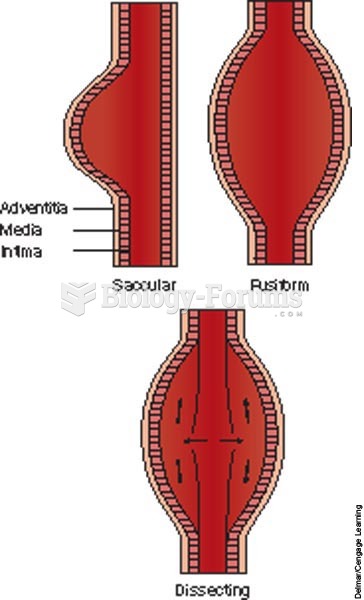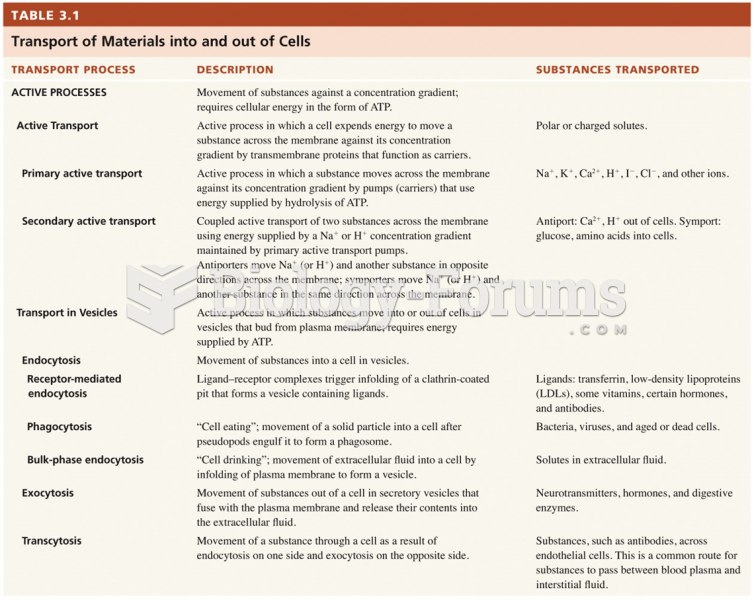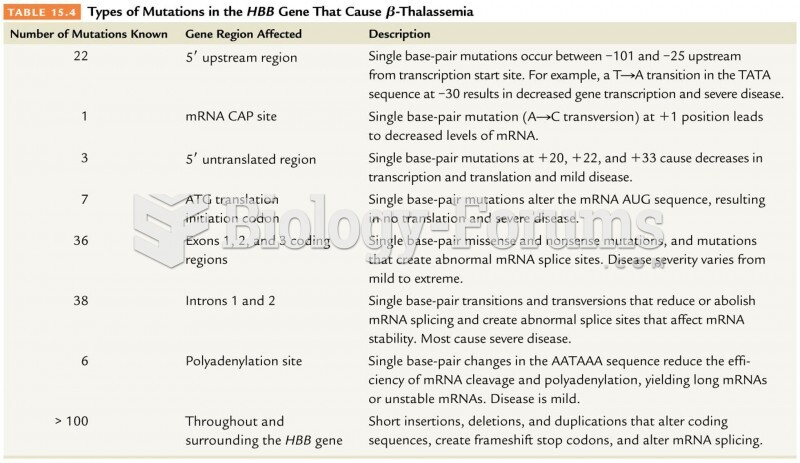|
|
|
To combat osteoporosis, changes in lifestyle and diet are recommended. At-risk patients should include 1,200 to 1,500 mg of calcium daily either via dietary means or with supplements.
Though the United States has largely rejected the metric system, it is used for currency, as in 100 pennies = 1 dollar. Previously, the British currency system was used, with measurements such as 12 pence to the shilling, and 20 shillings to the pound.
More than 30% of American adults, and about 12% of children utilize health care approaches that were developed outside of conventional medicine.
The B-complex vitamins and vitamin C are not stored in the body and must be replaced each day.
Multiple experimental evidences have confirmed that at the molecular level, cancer is caused by lesions in cellular DNA.







